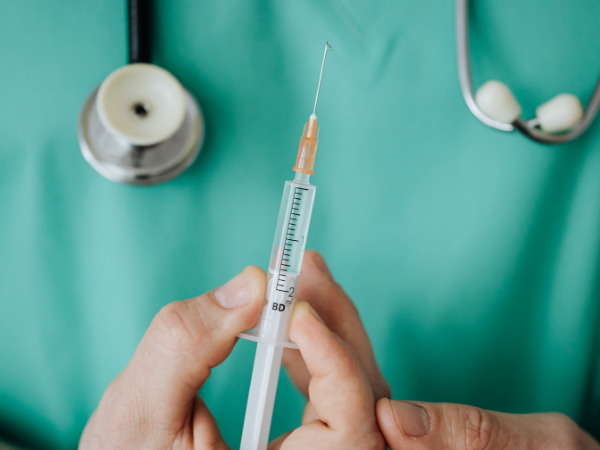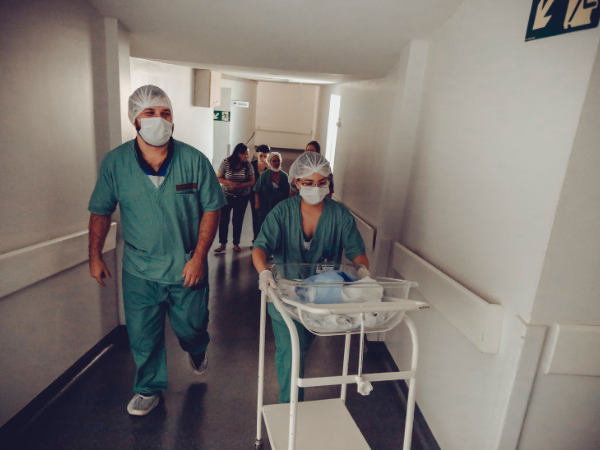How to become a nurse practitioner
If you’ve ever wondered how to become a nurse practitioner, it can be a lengthy process. Years of practice and training, plus completion of educational attainments, apart from your initial bachelor’s degree, are needed. However, it is a good and noble profession that is well-respected in the field of medicine.
Currently, the world is in dire need of medical professionals. Many countries look to immigrant doctors, nurses, medical technologists, pharmacists, and other healthcare providers. This is because some countries cannot meet the demands of their citizens for medical workers.
Nurse practitioners are quickly becoming the top choice health partner for millions. This perhaps has to do with the fact that they specialize in clinical expertise and primary care services. They add the personal touch of being a partner to patients when diagnosing conditions. Read on to know more on how to become a nurse practitioner.
What is a Nurse Practitioner?

As clinicians who focus on correct diagnosis and treatment but still stay deeply in touch with the before and after-care of patients, NPs are considered full-range healthcare providers. They bring a comprehensive perspective and personal touch to the medical field. But what are nurse practitioners, and how do they differ from registered nurses or RNs?
For one, NPs don’t particularly need to have RN licenses first to complete their training and certification. However, they do need to be masters or doctors in nursing practice to become NPs. They are also fully licensed in their approach and can autonomously or work directly in collaboration with doctors in certain states. They provide a myriad of primary, acute, and specialty healthcare services.
Related Articles
Top 5 CBD Gummies on Amazon
How to Become a Counselor
Best States in the US to Work in 2021
These include, but are not limited to, ordering and interpreting diagnostic tests and laboratory work; diagnosing and treating chronic diseases such as cardiovascular conditions and infections; counseling patients on their approach for treatments; prescribing medications and other forms of medicines; and overall patient care.
There are also NPs with specific specializations. Some family nurse practitioners care for particular patients or families of patients for years on end, sometimes until their working careers. Others choose specific fields like women’s health or pediatric care.
Years of Education and Training to Become a Nurse Practitioner
If you are interested in becoming a nurse practitioner, you will need years and years of nursing programs, certification exams, clinical evaluations, and many more preparations. All NP must complete an MSN program or obtain a degree in Doctor of Nursing Practice (DNP). All of these on top of your bachelor’s degree in nursing or other fields.
Years of didactic and clinical courses should prepare health care nurses with the specialized knowledge and medical competency to practice in this field. NP undergo rigorous training, national certifications, and peer evaluations to be considered as expert healthcare providers. The MSN and DNP programs required are all part of this preparation.
Nurse practitioners are also not confused with advanced practice registered nurses (APRNs), though they belong in that umbrella group. APRNs have obtained a Master of Science in Nursing (MSN) after completing their Bachelor of Science in Nursing (BSN). NP programs allow APRNs to have a particular area of specialization and become nurse practitioners. To put it simply, NPs are a type of APRNs.
Related Article: How to Write Press Releases
Registered Nurse vs. Licensed Nurse Practitioner
Nurse practitioners are of license in all states in the United States and the District of Columbia, much like registered nurses. They also work in many settings, including hospitals, hospice care, clinics, emergency rooms, urgent medical care sites, nursing homes, schools and universities, and many public health departments.
The main difference between the two is their scope of work. NP is a sort of bridge between RNs and primary care physicians (PCPs). They can diagnose and prescribe patients while still deferring to PCPs for their expertise. They also focus on health promotion and disease prevention, plus the overall well-being of the patient.
RNs are often more focused on the technical and clerical work of healthcare. However, both work hand in hand together to provide the best healthcare for those who need it. In terms of financial gains, nurse practitioner salary, as per the U.S. Bureau of Labor Statistics, makes a median annual salary of $100,910. Registered nurses make a median yearly salary of $68,450.
Fastest Way to Become a Nurse Practitioner
There is a way to become a nurse practitioner without going through years of training and experience for registered nurses. If you are a non-nursing bachelor’s degree-holder, the first thing to do is obtain a master’s degree in nursing. In as little as 18 months for some MSN programs, with additional prerequisite courses, if you have a liberal arts degree, you’re done.
The second step is to get your nursing license. You will need to pass the National Council Licensure Examination (NCLEX-RN®). Passing the NCLEX is crucial if you want to become a registered nurse in the US. After passing and gaining your license, you will need field experience.
At least one year’s worth of working as a professional nurse will give you insight and proper training before pursuing becoming an NP. This is important so you can test out if patient care and medical work are of suit for you. Once you have a year of experience, certification as an advanced practice nurse (APRN) is needed. After acquiring this, you can proceed with your state’s requirements for an NP license, or in some states, that’s also the same as the APRN license.
Related Article: Can I get COVID More Than Once?
Why Nurse Practitioners Are Important
Nurse practitioners are more than just medical workers; they are educators, researchers, mentors and sometimes become family to patients they care for. Their role in society isn’t only of limit to diagnosing and treating people with medical conditions. They extend beyond that. They put in the work of counseling to empower patients in making healthier lifestyle choices.
NP also provides top-quality healthcare services to anyone who needs it. They are bound by medical ethics and the oath to preserve life, much like physicians and nurses, regardless of race, religion, or status. This ensures patients that they will be taken care of first and foremost at the best of their NP’s abilities.
Healthcare costs are also significantly lower for NPs in comparison to physicians. This makes medicine and necessary consultations more accessible to patients who come from lower-income families. It is important to note, however, that NPs are not doctors. Still, they can provide excellent patient care in support of physicians.
Final Thoughts
The hows of becoming a nurse practitioner is not a particularly easy road to take. Then again, the field of medicine is rarely a walk in the park for any profession that deals with human lives. If you are seriously considering becoming a nursing practitioner, you can be one even without a degree in nursing, as stated above.
Being an RN will give you additional foresight and experience, but it isn’t a requirement. However, you still need to undergo intense training and certifications before being qualified to become an NP. If the end goal is worth it for you, try giving the process a go. Nurse practitioners are highly of value members of society who encourage people to make choices that will lead to longer and healthier lives.





